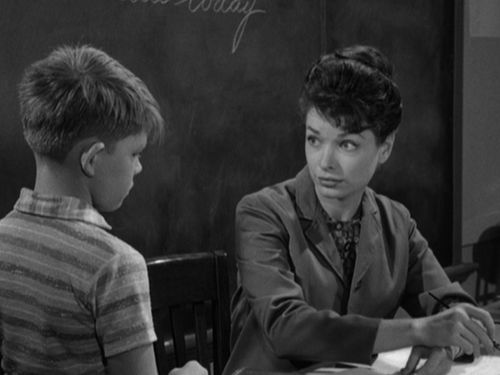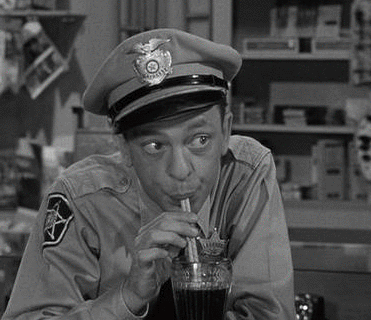 When I first came to the US to work, back in 1993, I wasn’t aware of some of the subtle differences between the US and Canada (or at least where I grew up), but I soon discovered a bunch of them. I could talk about the blank stares I’d get if I said “zed” instead of “zee” for the last letter of the alphabet or, instead, I could tell you the story of, early on, asking a student, at the University of Tennessee, “to write a make-up test” only to be presented by her with an untaken, freshly made-up test a week later.
When I first came to the US to work, back in 1993, I wasn’t aware of some of the subtle differences between the US and Canada (or at least where I grew up), but I soon discovered a bunch of them. I could talk about the blank stares I’d get if I said “zed” instead of “zee” for the last letter of the alphabet or, instead, I could tell you the story of, early on, asking a student, at the University of Tennessee, “to write a make-up test” only to be presented by her with an untaken, freshly made-up test a week later.
Note to self: people here apparently “take” exams; they don’t “write” them.
But the one that still strikes me as most interesting was how natural it was for me to talk about “marking” papers or to record and report the students’ “marks.” But pretty quickly I realized that if I didn’t call it “grading” or “grades” the students thought it mean that I was scrawling all over their essays (and thus “marking them up,” I guess — you know, like what you do with a magic marker). Even though I sometimes wondered if it was a regional difference (i.e., surely people up in New York state were would know what I was talking about, no?), I just put it down to another one of those quaint national differences, despite the pretty obvious similarities between the two countries.
But then, not long after one of those early “mark/grade” experiences in Knoxville (which, like the write/take distinction, I continue to experience here in Alabama to this day, by the way — e.g., a student just last week contacted me to clarify what I meant by sending the class an email about “writing the final exam”), I recall watching an old episode of “The Andy Griffith Show” (season 4, episode 8, as it turns out, an episode entitled “Ill Gotten Gain”) — the one where Miss. Crump, Opie’s teacher, inadvertently gave him an A in arithmetic (instead of the F that he deserved); the A came as quite a pleasant surprise at home: Andy is mighty proud of his son and Deputy Barney Fife thinks the boy must be a genius. And that’s why Opie just didn’t have the heart to later tell them what he eventually learned when his teacher called him up to her desk the day after report cards were given out.
“Opie,” she said,
it seems I made a mistake in transcribing some of the marks on the report cards; I’m afraid yours was one of the mistaken ones….
Marks.
So, 1963’s television viewing audience in the US apparently understood perfectly well what it meant to get a good or a bad “mark” — as do an older generation here in the US (judging by my own informal queries over the years) — yet many of the students I’ve taught over the past 20 some years are baffled if I fail to use the proper term (“grade”).
It’s a silly little e.g., perhaps, but it seems a good way into studying the linguistic as well as social flattening and homogenizing that seems to have been taking place across the US (and elsewhere, of course) over the past few decades. Once valued regional differences now seem much less pronounced, given the increasing centralization of corporate ownership and the now taken-for-granted role of mass media/communication, such that popular culture is today much more uniform (we’re all watching “American Idol” and cruising the same internet, for example) and the population strikes me as subscribing to a curiously narrow communicative band, at least as compared to just a few decades ago.
Sure, for example, there’s still different regional grocery store chains, all depending where you live in the US (we’ve got Piggly Wiggly in the South, sure, but, come to think of it, how likely is it that you now shop at a Walmart regardless where you live?), but the likelihood of finding, say, a quaint brand of local potato chips (that used to be all over the country) is pretty unlikely for, instead, you’ll find Lays chips no matter where you are in the US — which, makes sense, of course, given the buying binge that company went on, to acquire (aka eliminate) local competitors, after the onetime rivals, the Frito and the Lay companies, merged in 1961.
 So the interesting thing, here, is how to use my students’ inability to understand the “marks” they’ve earned, or that they are “writing” an exam, as the way into prompting them to consider the conditions in which they live and do their work — studying how those cultural conditions are determined by such things as corporate mergers. For the temptation is to see the one (culture) as somehow ethereal, linked merely to ideas, and therefore disconnected from the messy world of the other (buying and selling). But all you have to do is come to where I live, in the South, and hear all carbonated beverages, regardless the brand or the flavor, called “Coke” and you’ll start to see the deeply interconnected nature of language, identity, and commerce.
So the interesting thing, here, is how to use my students’ inability to understand the “marks” they’ve earned, or that they are “writing” an exam, as the way into prompting them to consider the conditions in which they live and do their work — studying how those cultural conditions are determined by such things as corporate mergers. For the temptation is to see the one (culture) as somehow ethereal, linked merely to ideas, and therefore disconnected from the messy world of the other (buying and selling). But all you have to do is come to where I live, in the South, and hear all carbonated beverages, regardless the brand or the flavor, called “Coke” and you’ll start to see the deeply interconnected nature of language, identity, and commerce.
